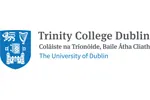About Mental Health, Graduate Diploma - at Trinity College Dublin
This M.Sc. course offered by The Faculty of Health Sciences is designed to meet the continuing education needs of professionals working the disciplines involved in Mental Health, including, nursing, medicine, occupational health, social work, probation and prison services. This course aims to provide an opportunity for students to develop a sound academic base to their practice and to critically explore mental health services. Graduates of this course can be expected to promote and develop excellence in their practice setting.
This M.Sc. in Mental Health offers the student a specialist module in year one. The Specialist module focuses on one specific area that the student is interested in. Specialist areas of mental health have already been identified by the curriculum committee. Forensic Mental Health and Child and Adolescent Mental Health are the options which will be available in the short term.
The StudentStudents on this programme are recognised as practising professionals with a resource of practice and educational skills and knowledge that will enhance their learning at this advanced stage of their personal and professional pathway. Each student is considered unique in life experiences, motivation for learning, learning style and scholastic ability. Throughout the programme a variety of student-focused teaching strategies is used, including co-operative learning, self-directed learning and experiential learning methods. Interdisciplinary sharing of knowledge and perspectives is encouraged and rewarded. Students’ past experiences are valued and integrated as a rich source of reflection and learning. Feedback and support are tailored to meet the individual needs of the student. Students also have an opportunity to engage in shaping aspects of the educational programme.
Students are enabled to reflect, inquire, critique, problem solve, evaluate and debate professional and practice issues in an academically robust manner. Students are empowered to generate evidence that will improve practice and are guided and supported through that process. Graduates of this programme, in applying their learning, can be expected to provide high quality care, leadership and education and to promote and develop excellence in their practice setting. The student is viewed as an active participant with responsibility for his/her own learning and development. Hence, the curriculum is focused on a transactional model of education, which strives to be collegial in nature and promotes independent, self-directed learning and self-evaluation.
Learning OutcomesOn completion of the Post Graduate Diploma in Mental Health the participants will be able to:
- Strengthen and develop their expertise in their area of practice through the use of enhanced knowledge, reflective skills and research-based evidence.
- Appreciate the historical evolution of the mental health services and the influence of national and international mental health policy.
- Recognize the importance of user involvement in delivering mental health care.
- Collaborate effectively with other disciplines with the aim to further develop their knowledge.
- Identify and critically discuss the core competencies for a specialist practice.
- Appreciate the importance of research and the development of a research base for practice.
- Explore the legal and ethical issues that impact on mental health practice.
- Discuss the range of models of care available and identify their strengths and weaknesses.
- Identify and apply processes for overcoming resistance to change and relate this understanding to an organization.
On completion of the Master in Science in Mental Health the participants will be able to:
- Strengthen and develop their expertise in their area of practice through the use of enhanced knowledge, reflective skills and research-based evidence.
- Devise, implement and evaluate methods for improving the quality of mental health practice in Ireland.
- Collaborate effectively with other disciplines with the aim to further develop the services and knowledge.
- Select, design and implement change strategies in the practice areas that lead to service improvement.
- Value the centrality of user involvement and ethical models of service delivery.
- Critically appraise methods of assessment, models of care and evaluate them against international standards of care and methods.
- Exercise administrative and intellectual leadership within their profession influencing policy and patterns of mental health services.
- Extend their skills in the critical evaluation of research reports and plan and conduct research studies.
The content of the programme is appropriate for PG Dip/MSc level and corresponds to the definitions of the Bologna accord. The course is designed to fulfil 90 ECT credits.
Academic Progression This PG Dip. /M.Sc. course will take place over two academic years on a part-time basis. Students may opt to exit the course on successful completion of year one and will receive the award of a Postgraduate Diploma in Mental Health. If the student wishes to proceed to year two they must forfeit the Postgraduate Diploma and exit on successful completion of year two with the award of the MSc in Mental Health.
Master in Science in Mental Health students are required to attend the University for one full study week at the commencement of the course and continue to attend for the equivalent of one day of study per week for both years. Subject to notice other study days may be necessary.
Entry into the M.Sc. year can only be achieved through successful completion of all components of the postgraduate diploma year. Students who successfully complete year one and wish to exit will be awarded a Postgraduate Diploma in Mental Health. They may not re-enter this programme at a later date to complete a year two to be awarded the Masters degree.


